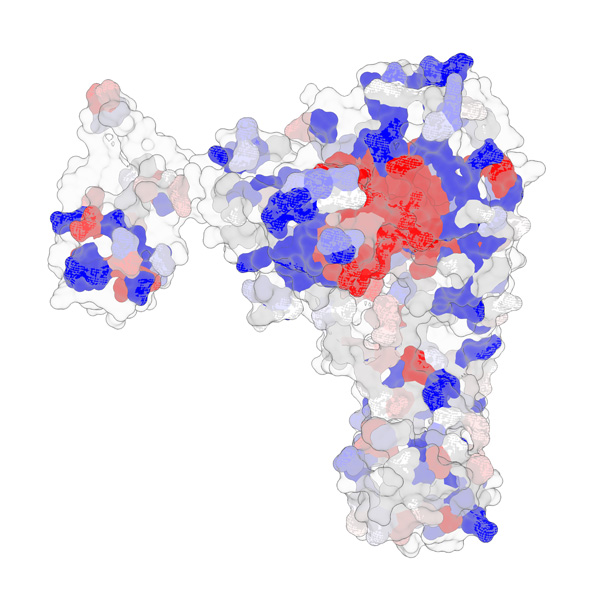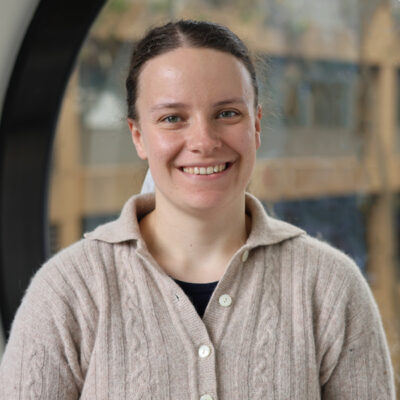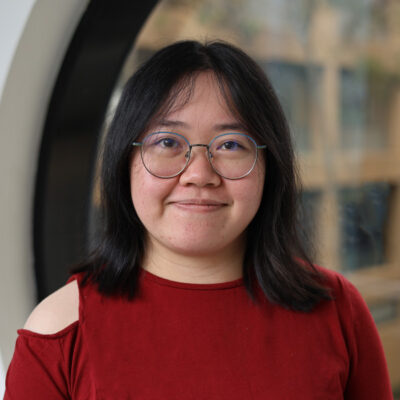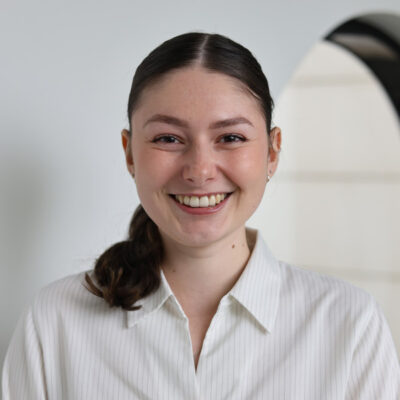The human immune system recognises and responds to infections but can overreact due to factors like age, environment, or genetic alterations, leading to autoinflammatory diseases. The Innate Immune and Autoinflammatory Disease Research group focuses on diagnosing and treating these conditions.

Distribution of highly active (red) and inactive (blue) variants on NLRP3 structure
Overview
Auto-inflammatory diseases can present anytime from very early in life with severe systemic symptoms such as fevers, swelling, redness, and pain. Diagnosis is typically delayed, requiring extensive investigations to rule out other conditions.
Professor Seth Masters and his team in the Innate Immune and Autoinflammatory Disease Research Research group manages the Australian Autoinflammatory Disease Registry, which aims to increase the rates of genetic diagnosis and gain insights into novel mechanisms for therapeutic development.
The group’s research aims to identify new forms of auto-inflammatory diseases, exploring ways to target innate immune pathways to address inflammation associated with chronic and neurodegenerative conditions.
Diseases we research
Areas of focus
- Identify new innate immune pathways causing autoinflammatory disease.
- Validate the pathogenicity of variants in inflammasome sensors.
- Determine how G-CSF and type I IFNs contribute to chronic inflammatory or neuroinflammatory pathology.
Research Group Head | Professor Seth Masters
Auto-inflammatory diseases stem from an overactive innate immune system. My research aims to identify the underlying causes of auto-inflammatory diseases, which is crucial for determining the most effective treatment strategies.

Meet the team

 Dr Shouya Feng
Postdoctoral Scientist
Dr Shouya Feng
Postdoctoral Scientist
 Dr Hani Hosseini Far
Postdoctoral Scientist
Dr Hani Hosseini Far
Postdoctoral Scientist
 Dr Paul Baker
Research Support Staff
Dr Paul Baker
Research Support Staff
 Imogen Bishop
Research Support Staff
Imogen Bishop
Research Support Staff
 Madeline Cleveland
Research Support Staff
Madeline Cleveland
Research Support Staff
 Klara Kong
Research Support Staff
Klara Kong
Research Support Staff
 Katherine Rosevear
Research Support Staff
Katherine Rosevear
Research Support Staff
 Andreas Dumortier
PhD Student
Andreas Dumortier
PhD Student
 Dhanya Narayanan
PhD Student
Dhanya Narayanan
PhD Student
 Maria Zyulina
PhD Student
Maria Zyulina
PhD Student
 Zhuoran Jiang
Masters Student
Zhuoran Jiang
Masters Student
News from the lab
Student opportunities

Collaborators

Publication highlights

